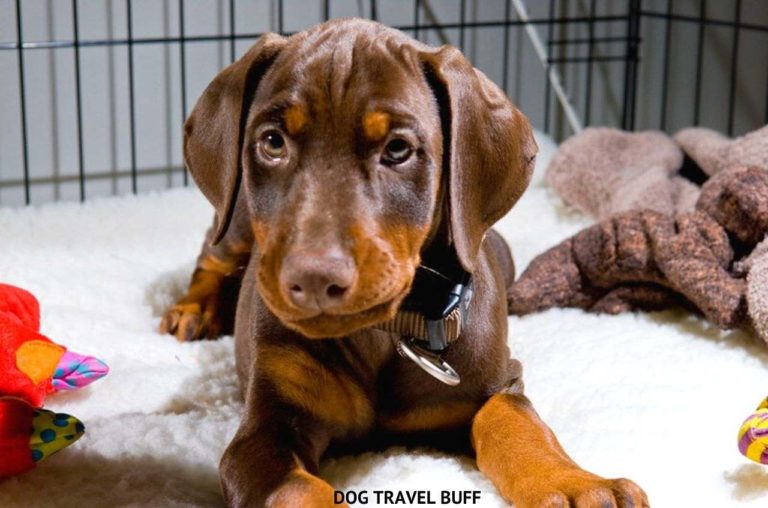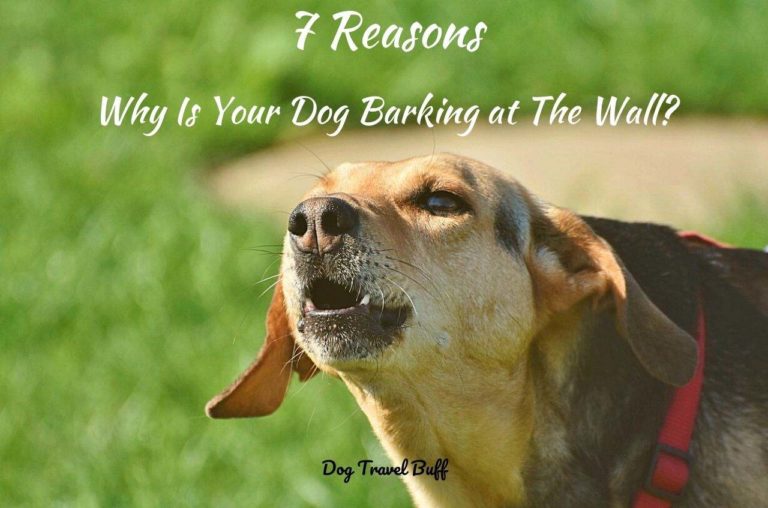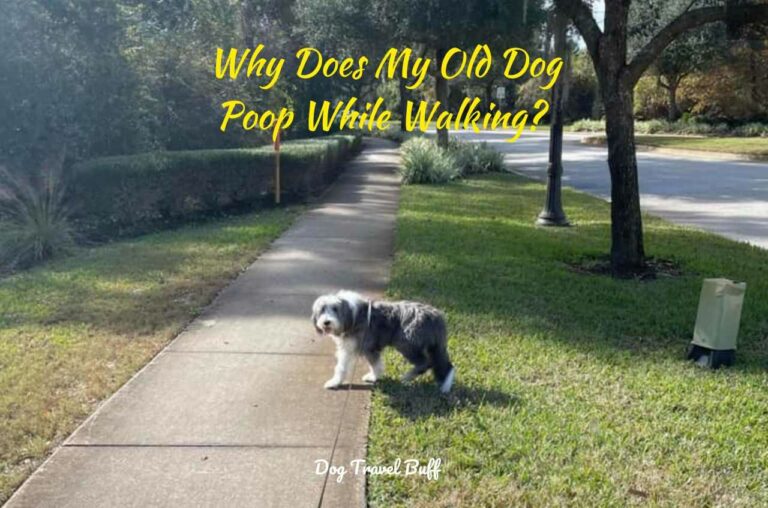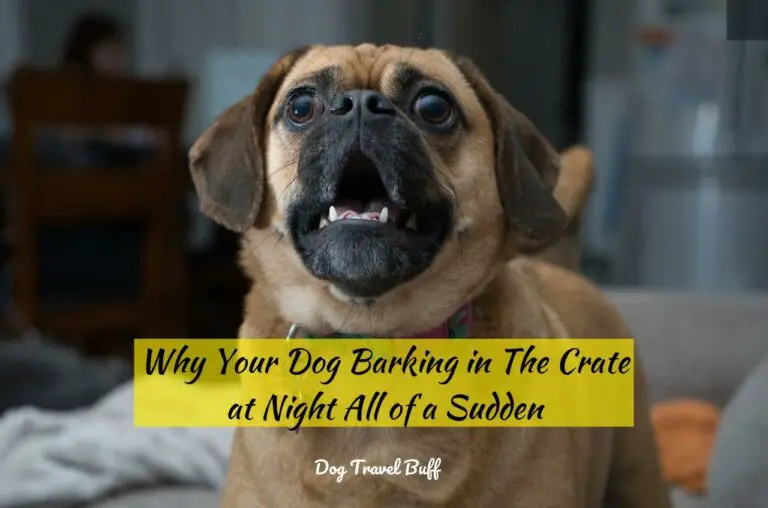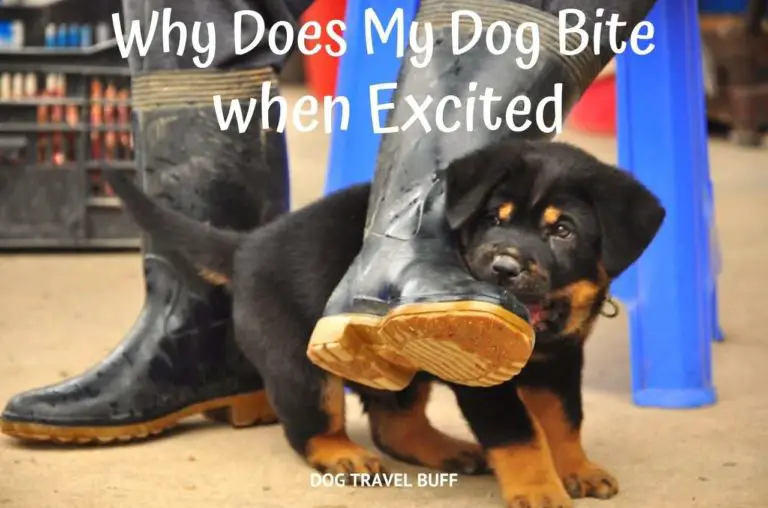10 Reasons Why Is My Dog Eating Slower Than Usual?
Dogs are pretty energetic animals. When they see food, they get so excited. As pet owners, we see this instinct in them; however, in some cases, dogs do not show excitement after getting their favorite food!
A sudden decrease in eating speed in dogs could be due to various reasons, including dental problems or an upset stomach. It is essential to monitor your dog’s behavior and consult a veterinarian if the change persists or is accompanied by other concerning symptoms.
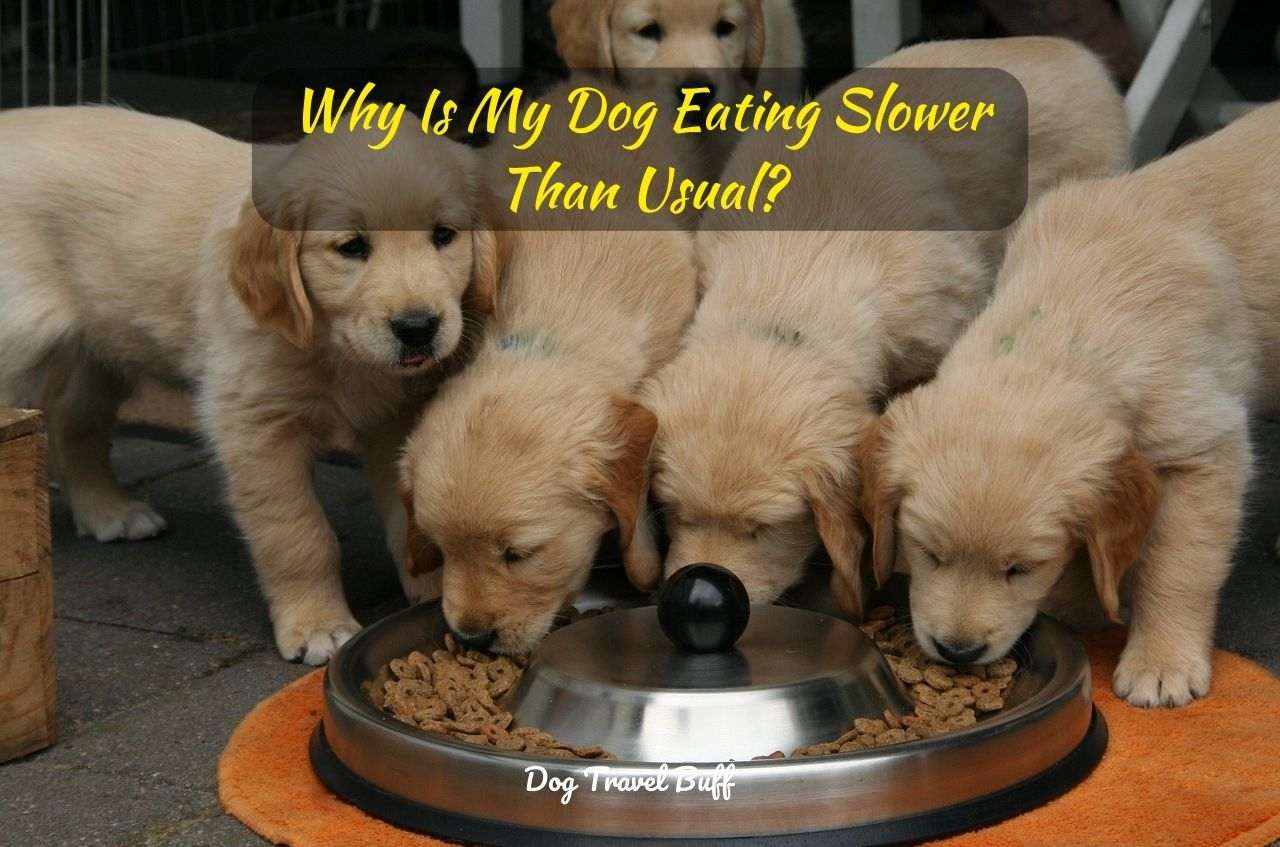
This post may contain affiliate links. If you buy something through one of those links, you won’t pay any extra penny, but I’ll get a small commission that encourages me to deliver more helpful content for you.
We often get the question in our emails, “Why is my dog eating slower than usual?” Is there something wrong with our furry pal? And we always try to reach you with an appropriate answer.
However, we cannot contact you every time, so we have decided to discuss the topic “Why is my dog eating slowly.” We hope you will get all the answers that you may wonder.
So there may be multiple reasons behind the slow eating behavior of your dog. Among those reasons, hot weather, gum problems, itching, and abdominal pain are the possible reasons. Some veterinarians say anxiety, anger, and other mental illnesses can make your dog a picky eater.
We have jotted down the below-mentioned points and answers so you will have a clear idea of why your dog is eating slower than usual.
Table of Contents
Common Reasons for a Dog Eating Slower than Usual:
1. Dental issues and oral problems
One of the main reasons behind the eating slow habit of your dog is dental problems and oral pain. These problems have been noticed in elderly dogs and small puppies. When your dog has gum problems during that time, it cannot eat at its usual pace. You may notice they eat reluctantly and slowly.
Just like human beings, dogs also suffer from oral problems and go through severe gum pain, sore throat, and mouth ulcers. However, they cannot scream and say, “I cannot eat Mama; I have pain in my mouth”! Thus they start eating slowly and eventually, we notice their unnatural behaviors!
2. Teething
If your dog is not finishing its meal properly, teething can be a reason. This particular problem can be seen in puppies. At an early age, puppies grow their new teeth. During this time, they cannot eat anything because of pain. It usually takes around 3 to 6 weeks to grow teeth.
Due to this pain, they do not want to eat even and sometimes they become gross and moody. However, by six months, they will have 42 new adult teeth; at that time, they also go through pain in their mouth. So these two times, they feel discomfort in their mouth. As a result, you will see them eating at a meager pace.
Sara and I personally noticed that most of the time, Jack starts to eat slowly because of his digestive issues. Yes, you read it right. As pet parents, we noticed this instinct in our furry pal. So we would like you to read this part carefully.
3. Digestive Disorders
“My dog is eating slowly, and it remains gloomy. What shall I do?” We get these emails very often. Your dog may remain lazy because of a sad tummy. When dogs go through stomach issues, they tend to remain lazy, grumpy, and do not even want to eat!
Stomach issues such as bloating, gas, pancreatitis, and intestinal issues are some causes of appetite loss in dogs. As a result, they start to eat slowly.
4. Tasteless Foods
This is one of the main reasons for dogs’ slow eating habits. You may not agree, but in many cases, we have seen dogs do not like the food we offer them. They do feel like eating something new occasionally.
Conventionally dog foods may not satisfy your dogs’ taste buds, so try to give them different food once a month. You will see the difference.
5. Food Allergy
Food Allergies can be the leading cause that makes your dogs lazy, and they do not eat at a faster pace. Dogs can also have food allergies, leading them to avoid certain foods that might cause discomfort in their bodies.
Similarly, both humans and dogs can be intolerant to certain grains and dairy products. These foods can result in gas, diarrhea, bloating, and acid reflux for them. When given these foods, they tend to eat them reluctantly and at a slower pace.
6. Weakness
If you see your dog is going through severe anxiety and remains calm all the time, which is not its actual nature, then it can cause slow eating behavior. Old dogs often remain sick because of weakness. It has been observed that due to their anxiety disorder, they start to eat slowly.
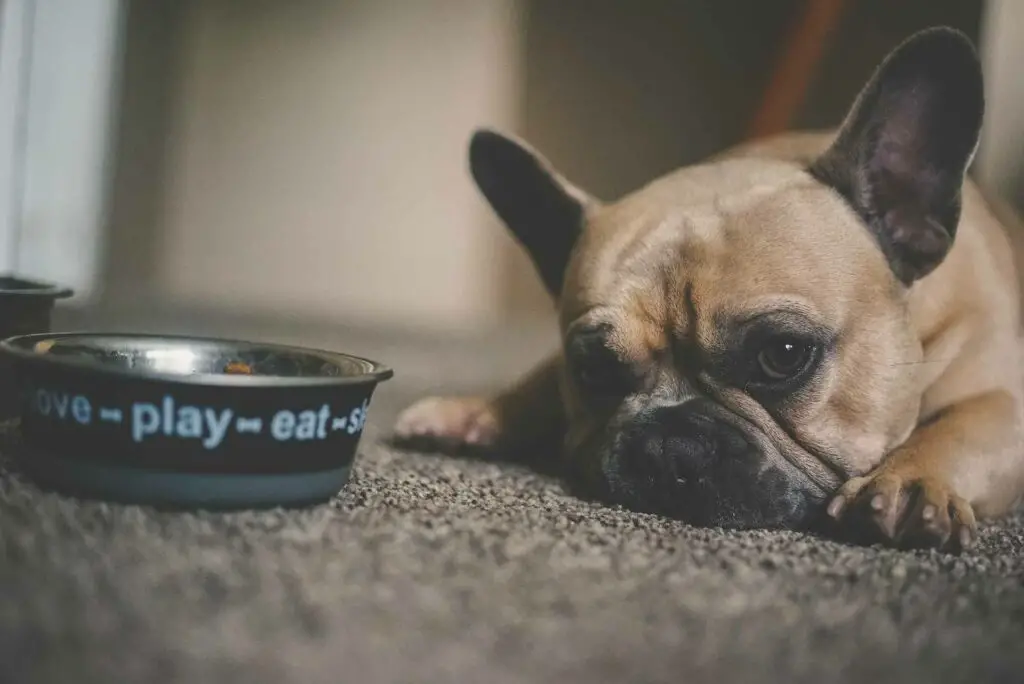
7. Stress and anxiety
Another reason behind the changes in dog’s eating habits is separation anxiety or changes in their environment. This is common in most cases. When you bring your dog to a new space, it may feel lonely and uncomfortable, which can cause them to not eat properly.
8. Hot weather
During hot weather, a reduced appetite in dogs is a common problem. During this time, dogs may not want to eat as much or as regularly. Many animals experience discomfort during the summer due to issues like rashes, itchiness, and other skin disorders. Consequently, they tend to eat less than they would during more moderate weather conditions.
9. Underlying Medical Conditions
If all these causes are not the ones behind the slow eating habit of your pal, then the cause may be critical and lying under your dog’s health. The medical condition may be related to kidney and liver disease too. So, in this case, you must consult your veterinarian as soon as possible.
10. Undergoing Medication
Medication is another reason why your dog does not eat at its regular pace. We discovered it when Jack got injuries on his legs. He was going under medication. So we noticed that he would not eat enough during those days.
When we consulted with the doctor, he explained that it was because of the medication. Some dogs are allergic to specific medicines, and because of the allergic reaction, they lose their appetite, but it will not become normal in a few days.
Some dogs are allergic to specific medicines, and this allergic reaction can cause them to lose their appetite. However, it may take some time for their appetite to return to normal after stopping the medication.
Signs and Symptoms to Look for
When dogs lose their appetite, they tend to eat slowly, feel irritated and may remain calm and lazy. Some of you will notice that your pet may not be excited after getting its favorite food.
Symptoms like decreased food intake, lethargy, and gloomy face are some of the symptoms you may notice simultaneously when your dog eats slower than usual.
When to Seek Veterinary Care
If your pal is consistently eating at a low pace, there should be other reasons behind it. During hot weather, dogs tend to eat low amounts of food, which is expected, but if your dog continues to consume low amounts of food, then this must be a reason to worry. At that time, you should take your dog to your Vet.
We often seek help from the internet; however, as pet parents, we should be careful about the dog’s health. Some serious health issues can also affect your dog’s appetite. So whenever we see any irregular food consumption, we must consider taking our pal to a specialist instead of seeking help from the internet.
Tips to Encourage Normal Eating Behavior
Not every dog eats at a slow pace due to medical issues; but in most cases, it has been noticed that dogs do not want to eat at a rapid speed out of lazy behavior. To make your dogs more energetic, you can use some valuable tricks and tips that can make your dog agile.
Try different foods:
Yes, it is true. We applied these tips, and guess what! Jack is more energetic, and whenever we see him watching at a slow pace or lethargic, we give him some other food, making him excited in a sec. Sluggish eating behavior in dogs is typical and goes away over time, but if it remains for a prolonged period, you can change your dog’s diet.
Choose a quiet place to feed:
As humans, dogs also sometimes need space. Especially when they eat, so try to change the place of feeding. A quiet place where nobody interrupts is ideal for feeding your dogs.
Avoid cold food:
If you offer homemade food to your dogs, then it is suggested not to feed them cold food. Cold or stale food often makes your dog lethargic and turns their energy down. As a result, your dog becomes reluctant to eat.
Keep an eye on oral health:
Sometimes when our dog eats slowly, we should check their gum because out of pain, he may not be able to eat at his regular pace. So if there is any gum bleeding problem in your dog’s mouth, try to help him heal it.
Conclusion
Dogs are wild animals. They go through some experiences that we sometimes do not understand. Some of their instincts are barking at night, humping after eating, and altered feeding behavior. But these instincts are not persistent. But if these remain with your dog for a long time then there must be some serious issues.
As pet parents, we must detect the cause and help them to deal with it. This article shares our personal experience of dealing with our dogs’ slow eating habits. We’ve covered why dogs eat slower than usual, the causes behind their slow eating habit, and how you can help your dog deal with these issues.
Read Next:
FAQs:
1. Should I be concerned if my dog is eating slower than usual?
A: It is normal behavior, but if your dog is not eating its daily meal and eating slowly, you must check the reason behind it and try to rule out the reason as soon as possible.
2. Can dental problems be a cause of a dog eating slower?
A: Yes. One of the main reasons for eating slower than usual is an indication that your dog may have gum problems. These can be seen in puppies and old dogs.
3. Are there any behavioral reasons why a dog may eat slower?
A: Anxiety is another reason why your dog eats slowly. If your dog is going through anxiety or depression, then it may not eat its meal at its regular pace.
4. Should I change my dog’s diet if they are eating slower?
A: Changing a dog’s diet is a great way to check whether your dog is eating slowly because of its regular food or not. Sometimes regular food makes them bored, and they want to avoid eating or may eat slowly. Shuffling the diet may help you determine whether it is the leading cause of this slow habit!
